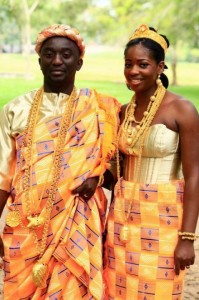
A few years back, I was privy to a traditional wedding ceremony where the groom and bride families came together and the groom paid the bride price. This is considered symbolic, and marks the union of the two families.
Before the arrival of Europeans and their church (white wedding), the bride price was the way to go, to get married. This is a practice as old as the world. It is a custom widely practiced across Africa. It plays a very important role in our traditions and cultures. It marks the coming together of two families. I loved the comment one of my friends made: “I found giving bride price to my wife’s family an enriching experience. Going to work and saving money gave me a sense of how precious she was to me. The contention I often hear against bride price often cite the greedy few who have spoken the loudest. There are millions who still respect the practice.” Yes… many still respect and value the practice.
It is a cultural practice which makes for stronger family relationships, and do help with arranging conflicts when they arise in marriage.
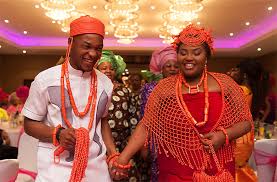
The bride price also known as bride token, is an amount of money or property which is paid by a groom and his family to the family of the bride. In many parts of Africa, the bride price confirms the validity of a traditional marriage and conditions the permission to marry in church or in a civil ceremony. Its power supersedes all other sorts of marriages. The marriage is considered invalid if the bride price has not been paid, and this actually affects the marriage, and the offspring from that couple as it is then considered that the groom and his family have despised and dishonored the bride’s family. The children from that union do not belong to the husband’s family, but rather to the woman’s, as he never paid the bride price, and thus has no right over them.
Last year, a friend of mine returned the bride price which had been paid for his sister’s hand to the groom’s family, as he (the groom) had dishonored the wife, almost beaten her to death, and cheated. In this instance, this was to mark a divorce. Now what will happen if the woman wanted the divorce and could not afford to reimburse the bride price? What if rupture was the only way out of this marriage, what should she do? Divorce is still highly frowned upon in African societies, and the stigma of it affects the woman deeply.
Although the bride price is a symbolic token, it has been described in many African countries as a license to own a family or to purchase a wife from a family often leading the man to receiving the “permission” to exercise economic control over his wife. It has also been criticized for being an “enrichment scheme” for the bride’s family. There are two serious questions that have arisen with the evolution of the bride price: has it truly become a source of income for families and does it have a negative impact on women?Does the practice of the bride price hinder the work of women’s rights and empowerment activists? Does the bride price create more bad than good by leaving newlywed couples with unfortunate financial problems which strip them of the joys of being newly married? Has the bride price truly become a source of enrichment for families and demeaning to women?
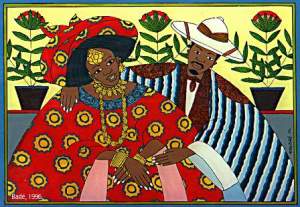
This is a tradition truly African which should be upheld… and it varies from country to country, and maybe should be checked to avoid excesses from the bride’s families… and to stop the groom’s families from depriving the bride of her rights once in the marriage.
Below are comments by African BBC correspondents about Bride Price practices across Africa. For the full article, check Bride price practices in Africa:
==========
Pumza Fihlani, South Africa:
A bride price here is known as “lobola“, where the groom’s family presents either money or cows or both to the bride’s family as a gesture of his willingness to marry her.
The payment of lobola is a sign of the man’s commitment to take care of his wife and is seen as a symbolic act and a necessary part of upholding culture, rather than a purchase.
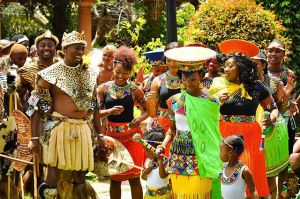
Kim Chakanetsa, Zimbabwe:
The term “lobola” is also used in southern Zimbabwe, but in Shona communities it is known as “roora” and while the tradition is to give cattle, this is now often replaced by cash – the amount is subject to negotiation.
There are several stages to the tradition and it is seen as a way of thanking the bride’s family for bringing her up, but there is no sense that the bride is being bought.
Abdourahmane Dia, Senegal:
The payment of bride price is customary in Senegal but largely symbolic.
A small amount of money and a kola nut is given to the bride’s family at the mosque, after that the sum handed over can be anywhere from less than $100 to tens of thousands.
Angela Ngendo, Kenya:
The Kenyan constitution outlaws the obligation to pay a bride price but it is widely understood that it will be paid.
Pastoral communities insist that it is paid in cattle and it has been cited as a cause of cattle rustling, whereas families in other communities will accept cash.
There is a sense that a transaction has taken place over the bride.
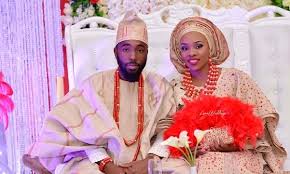
Leone Ouedraogo, Burkina Faso:
The bride price is commonly paid in Burkinabe culture and is largely a symbolic act.
There is no set amount and a little money is given, but it is mainly in goods such as Kola nuts, drinks, cigarettes – and some ethnic groups may give a goat.
However, a bride’s family is not normally too demanding.
Aichatou Moussa, Niger:
In Niger, there is an official maximum rate for a bride price of 50,000 CFA francs ($83, £54) but many pay much more than this.
The price is agreed between the families, but it is seen as a symbolic act rather than about buying the wife as Nigeriens say not matter how much is paid you cannot buy a human being.


I was supposed to attend one of these rituals here in the states as I was dating a man from Nigeria and they were holding the ceremony over here.
I went to the house of the people originally from Nigeria with the man I was dating to get ready to go to the venue where the ritual was to take place and I was so mistreated by these people, I drove off.
I was the only American Black person there and while all of the people from Africa were having a great time speaking in their native tongue, imbibing expensive alcohol and eating native dishes, I was presented with a plate of burnt rice with a big piece of fat sat smack dab in the middle of the burnt rice and to wash this down with, a glass of water and I was seated all by myself in a separate room from everyone else. If this is how Black folks from America are treated by Africans, I want no part of Africa or Africans.
LikeLike
My dear Shelby, please forgive these people who clearly had no respect for you as a human being, and they would have treated me the same way… trust me. It had nothing to do with you being Black from America, it had everything to do with their manners which would have been the same to any other foreigner, i.e. foreign to their language, to their village, foreign to their country, etc. Do not take this as a representation of Africans. In general, we are loving and sometimes too welcoming.
LikeLiked by 2 people
Thank you for that most thoughtful comment. My faith has been restored.
LikeLike
I am so glad
LikeLiked by 1 person
It is part of our traditions and a true symbol of union between Two families. Excesses should be managed for sure but the essence of practice is of great respect from my point of view.
LikeLike
Well said Anna! Thanks… what you said is so true!
LikeLiked by 1 person
U’re welcome
LikeLike
The bride token is so interesting. This is the second item I’ve read about it. I’ve thought about giving one to my in-laws despute I have benn married for 5 years
LikeLike
Yes oooo…. they raised her so well…
LikeLike
An insightful post on African value system.
LikeLike
I am American Barbadian heritage. I married a malian man he paid no bride price although my mother could not attend and my father died years ago. I felt like I paid the groom’s price to his family since I paid for just about everything. His Mom and sisters treated me very kind and I felt welcome. I bought gifts for everyone what I could afford as a token. I feel he got me free?
LikeLike
Oh my dear Yvonne. How do you feel now? He is portraying the same attitude till now? Are you still paying for everything? Is there anything in the back of your mind that is still bugging you? If the answer to any these questions is yes, then maybe ask to be treated better. Is your marriage full of love? are you happy? What counts the most is the love you feel in the marriage, not particularly the bride price. I still think he should have paid the bride price, which is a bride token, an amount of money or property which is paid by a groom and his family to the family of the bride, to show respect for them raising the bride, etc. It is symbolic. Can he still do it now?
LikeLike
Hi Dr. Y,
Thanks for your response. My husband is younger and I feel he has a ways to go to learn about a wife’s feelings. He says he loves me and feels me in his heart. He tries to get close but I feel the wall is up on my part. I’m guarding my heart for now. I will monitor our marriage very carefully. We’re married 2 years of which he was in his country waiting for a visa. My in-laws are great people and I’m learning some bambara n french to have basic conversations. My Mom want her dowry for her daughter 😁. Take care my brother.
LikeLike
Take care Yvonne, and I wish you a good and happy married life!
LikeLike
tbh, all these values about bride price, its symbol and all that, it is not upheld after the marriage, in some marriages though, but i would prefer the items that are being demanded to be the only thing the groom’s family is to offer. like you wrote,the exploitation of this bride price by families is outrageous. even with the financial crisis it causes, the rights of women in the home, the abuse some men do to their wives… this tradition has to be looked into.. in my own opinion though. thanks.
LikeLike
Hi Dr. Y,
Thanks for your response. My husband is younger and I feel he has a ways to go to learn about a wife’s feelings. He says he loves me and feels me in his heart. He tries to get close but I feel the wall is up on my part. I’m guarding my heart for now. I will monitor our marriage very carefully. We’re married 2 years of which he was in his country waiting for a visa. My in-laws are great people and I’m learning some bambara n french to have basic conversations. My Mom want her dowry for her daughter 😁. Take care my brother.
LikeLike
Before the arrival of Europeans and their church (white wedding), the bride price was the way to go, to get married. This is a practice as old as the world. It is a custom widely practiced across Africa
LikeLike
Yes Tardeo… that was all that was needed. Thanks for commenting
LikeLike
Before the arrival of Europeans and their church (white wedding), the bride price was the way to go, to get married. This is a practice as old as the world. It is a custom widely practiced across Africa
LikeLike
OnTLC, they showed a white American in Nairobi there to see his finance. He was required to pay a bride price and speak to the brides father. After the talk with her father, they were considered “married”. No vows were spoken between the bride and groom! He could have married a puppy!!!!!! Later she was angry with him that he had not told his family beforehand! Heck, he did not know beforehand that the “talk” with her father constituted a wedding. Is that a common practice in Nairobi?
LikeLike
Usually, the “talk” involved more than just the father! Marriage in Africa is considered a union of families, and so the “talk” is between families. The groom’s family comes to ask the bride’s hand. There is the bride price, but there is above all families talking.
LikeLike
my future wife has told me about dowry, I understand her Kenyan traditions but I am not willing to be held ransom to her uncle who is head of the family.
LikeLike
Eric, this is not being held ransom to a family… try and ask her more questions about it, and her culture, and maybe you will feel differently?
LikeLike
I muse say I’ve really learnt alot from this. Thanks for uploading. I love the African culture.
LikeLike
Thank you Cynthia… so good to know that you enjoyed this article.
LikeLike
BBC. WOW. If Europe is sooo good….why study Africa? shaking my head !!!!
LikeLike
Pingback: "Bride price" as an alternative word to "dowry" in Arabic societies [closed] - English Vision